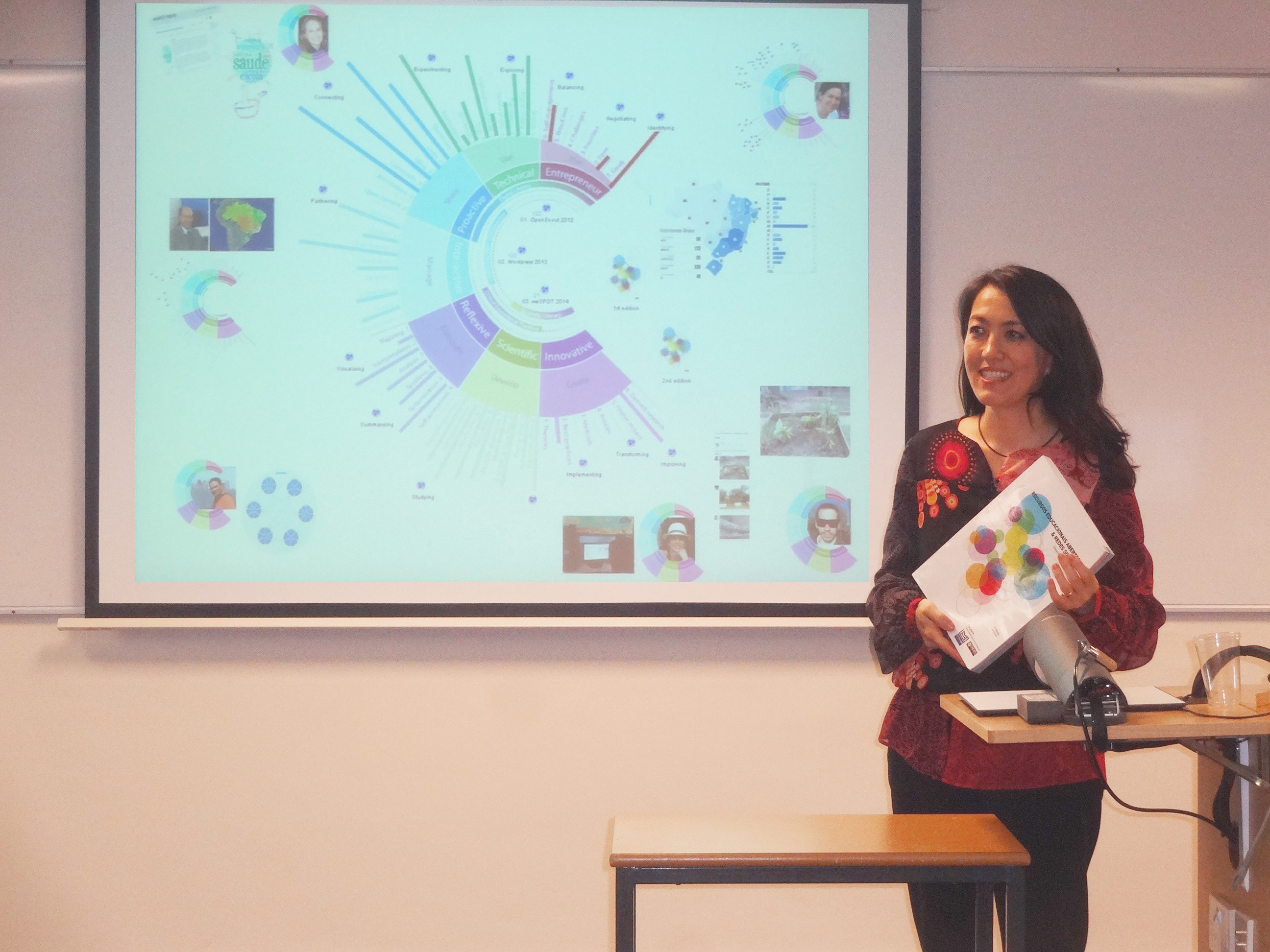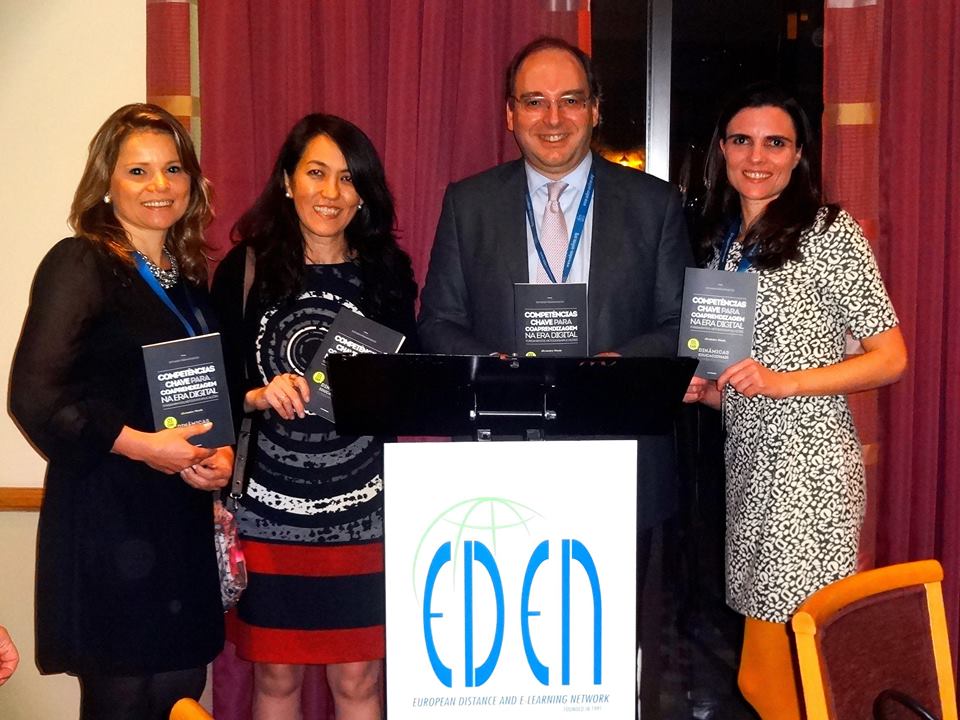EDENRW8, which was held in Oxford on 27-28 October 2014, provided a good overview of the current state of online, open and distance learning in Europe. This event was organised by Professor Antonio Moreira Teixeira, President of EDEN from the Open University of Portugal, and Professor Belinda Tynan, Pro Vice-Chanchellor on Learning & Teaching at the Open University UK, with official Rapporteur, Professor Tony Bates.
Ale Okada presented “Developing 21st Century Skills through Colearning with OER and Social Networks”. Her research focuses on COLEARN, an open research network constituted by communities of educators, students and researchers who have been participating in various OER international projects, including OpenLearn (2006-2009), OpenScout (2010-2012) and weSPOT(2013-2015).This study presented a group of skills that emerged in the COLEARN network during the production of the research book “OER and Social Networks”. The coauthoring process was based on colearning approach with OER and social networks. Her work presented in EDEN was also published in the book “Key competences for colearning in the digital age” by WhiteBooks Publishers in Portugal, which was launched during the event.
Almost 150 participants from more than 30 countries presented over 40 selected research papers. There were lots of opportunity for deep dialogues and feedback on our research through very interactive sessions: team symposia, ‘research-speed-dating’ papers, demonstrations, poster sessions, a connect lounge and informal sessions.
Tony Bates presented great comments during the workshop and in his blog, which were summarised below.
Research on Open Education:
- Most practitioners – instructors, teachers and computer scientists – are unaware of the major research findings and best practices about online teaching and learning particularly to the management of online discussions and online course design
- Some mistakes being made through MOOCs: unmonitored student discussion, the re-invention of the wheel through online courses for the masses, discovering what has already been known for many years: students like immediate feedback.
- More and more instructors are moving into blended and hybrid learning, but are unaware of knowledge about online learners and their behaviour.
- Successful innovation is more cumulative than “a leap into the dark”.
The complexity of teaching and learning:
- Learning is a process, not a product.
- There are different epistemological positions about what constitutes knowledge and how to teach it,
- Above all, identifying desirable learning outcomes is a value-driven decision
- If we want to develop the skills needed in a digital age, the traditional lecture-based model, whether offered face-to-face or online, is inadequate.
- Academic knowledge is different from everyday knowledge; academic knowledge means transforming understanding of the world through evidence, theory and rational argument/dialogue.
- Learning is heavily influenced by the context in which it takes place: one critical variable is the qualities of course design; another is the role of expert teachers/instructors.
- These variables are likely to be more important than any choice of technology or delivery mode.
Some challenges for Researchers on Online teaching and learning:
- Poorly funded by the research councils.
- There are many different variables which affects learning
- Most studies are small scale, qualitative and practitioner-driven.
- Most research in online learning is published in journals that are not read by either practitioners or computer scientists
- Integration of research findings is difficult, although Anderson & Zawacki-Richter (2104) have done a good work
- Online learning is still a relatively new field, less than 20 years old
- Most instructors at a post-secondary level have no formal training in any form of teaching and learning
Multiple audiences to be reached:
- Practitioners: teachers and instructors
- Senior managers and administrators in educational institutions
- Computer scientists and entrepreneurs interested in educational services or products
- Government and other funding agencies.
Next Steps:
- How best to identify the key research findings on online learning around which most experienced practitioners and researchers can agree
- The best means to get these messages out to the various stakeholders.
“I believe that this is an important role for organizations such as EDEN, EDUCAUSE, ICDE, but it is also a responsibility for every one of us who works in the field and believes passionately about the value of online learning”. (Bates, 2014)
Related Links:



